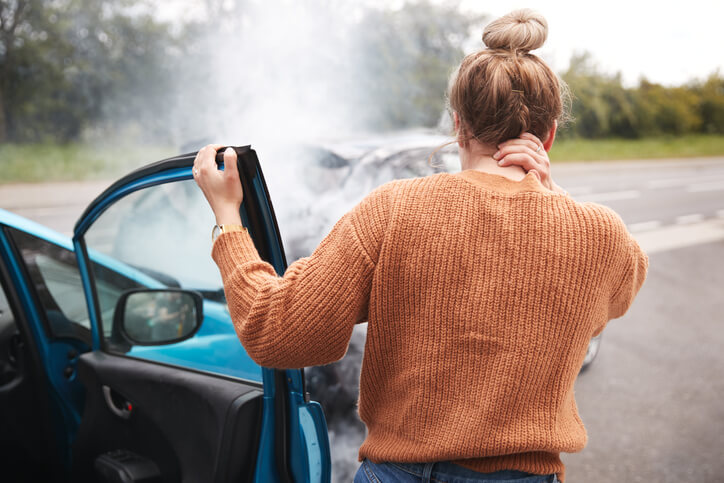As a child, you were probably taught to say “sorry” when you felt regret or remorse for something. You might even say “sorry” now to express sympathy. You may even say “sorry” reflexively or out of habit.
The furthest thought from your mind when you say “sorry” is that you feel culpable or responsible for what happened. But this is exactly what others may infer if you say “sorry” after an accident.
Here are some reasons never to say “sorry” after a car accident and some steps you can take instead.
Anything You Say Can Be Used Against You After A Car Accident
The police must warn suspects under arrest that anything they say can be used against them. The same warning applies to car accident victims.
The legal system distrusts hearsay, which generally cannot be introduced in court as formal testimony. Hearsay includes any out-of-court statement offered in court to prove the subject matter of the statement. The statement, “Sorry, I wasn’t watching where I was going” is hearsay.
But the New York rules of evidence include several hearsay exceptions, such as:
- Admissions against interest
- Excited utterances
- Prior inconsistent statements
If your words at the accident scene fall into any of these categories, a judge can allow them into evidence.
For example, suppose that you testify during your injury lawsuit that you knew immediately that the other driver caused the accident because you had a green light. The other driver’s lawyer can use your statement of “sorry” to impeach or discredit your testimony. A judge may allow it because your “sorry” is inconsistent with your testimony that you knew immediately you were not at fault.
Insurers also know this. If an insurer has a witness who heard you say “sorry,” the claims adjuster can deny or reduce your injury claim.
This happens because New York uses the “comparative fault” analysis to allocate damages. If you are 20% at fault for your car accident, you can only recover 80% of your damages. Your “sorry” could reduce your insurance settlement or jury award.
Tips for What You Should Do and Say After a Car Accident
After an accident, you could feel:
- Upset
- Angry
- Confused
- Physically injured
- Mentally traumatized
You should not make any impulsive remarks after the stress of a car accident. They could come out wrong.
Instead, you should focus on managing the accident and any painful injuries it caused. Some subjects you should talk about after a car accident include:
Your Injuries
If you need help, ask for assistance. Call 911 to get an accident report and let the police know if anyone needs medical assistance. If an EMT or police officer asks about your injuries, describe your injuries and how you got them.
The Accident Investigation
You must report accidents that result in death or injury. If no other driver has reported the accident, call 911 to report it.
When the police arrive, the officers will investigate the accident. The police will ask you for a statement. You should cooperate with the police as best as possible.
When you give your statement, you should stick to the facts. Try to stay calm and avoid any emotional outbursts. You should talk directly to the investigating officer and not confront any of the other drivers. Any of these behaviors could make it into the accident report and reflect poorly on you and your injury claim.
You should also refrain from speaking to any insurance representatives in the days following the accident and before you hire an attorney. Kohan Law Group handles all correspondence on behalf of their clients to ensure your best chance of recovery and so that you can focus on treating your injuries.
Damage Control After an Accident
The trauma you experienced during your accident might have caused you to say something potentially damaging. After your accident, you should consider speaking to a personal injury lawyer to discuss the best ways to deal with the damaging statements.
To discuss the statements you might have made after your accident, contact Kohan Law Group to schedule a free personal injury consultation.

